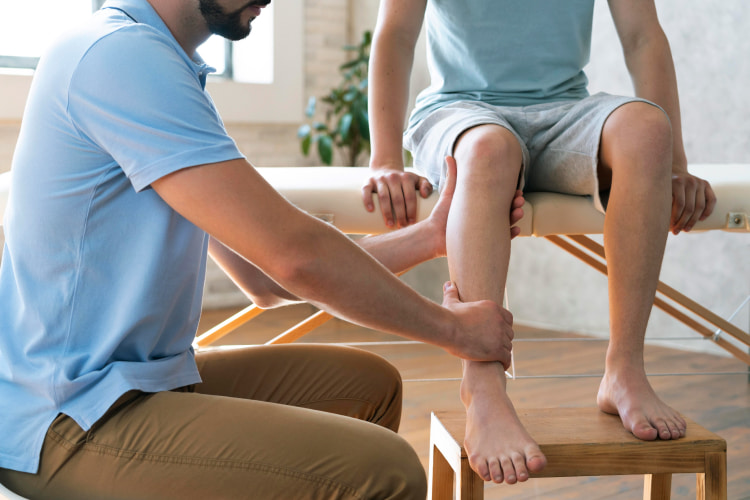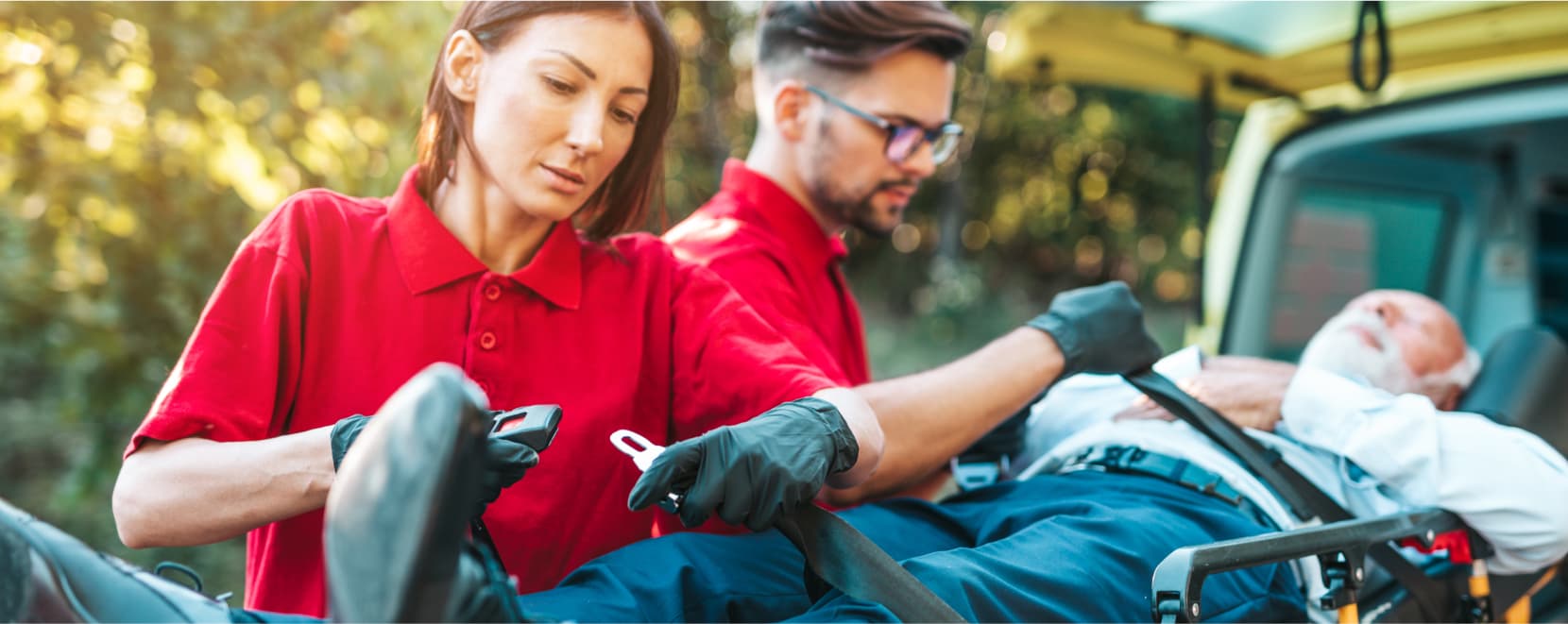Car crashes can be the reason for many various kinds of traumas. They involve knee damages that can be hurting and debilitating. Knee injuries from car accidents can range from minor cuts and bruises. But there are more severe conditions that require surgery. It’s essential to understand the symptoms, causes, and treatments of knee injuries. This information can prevent long-term damage and promote proper healing.
In this article, we will explore common knee injuries that can appear after a car accident. Also, you will find out their symptoms and how to treat them. By the end, you will understand the various types of knee injuries and their treatments. In such a way, you can take the necessary steps to heal your injury and return to your normal daily activities. In any case, seeking medical attention is crucial. It will help you to avoid further damage and promote a speedy recovery. So don’t hesitate and find a healthcare specialist!
Common Knee Injuries From Car Accidents
Some of the most common knee injuries resulting from car accidents include:
- Fractures. The force of impact in a car accident can cause the knee bone to break. Knee fractures can be particularly painful. They may require surgical intervention to heal properly.
- Anterior Cruciate Ligament (ACL) injuries. The ACL is a key stabilizing ligament in the knee joint, and it can be torn or strained in a car accident. Symptoms of an ACL injury may include swelling and pain. Sometimes there is also difficulty bearing weight on the affected leg.
- Meniscus tears. The meniscus is a piece of cartilage in the knee joint. It provides cushioning between the bones. A car accident can cause the meniscus to tear, leading to pain, swelling, and limited range of motion in the knee.
- Dislocated knee. A dislocated knee occurs when the bones of the knee joint are forced out of place. This type of injury is particularly severe and may require surgery to repair.
- Patellar tendonitis. The patellar tendon is the tendon that connects the kneecap to the shinbone. Injuries to this tendon can cause pain, swelling, and difficulty bending the knee.
Car accidents can cause a variety of injuries. The knee is one area of the body susceptible to damage. In fact, knee injuries are one of the most common types of injuries resulting from car accidents. So, if you have been involved in a car accident and experienced a knee injury after, it is important to seek medical attention as soon as possible. A doctor or chiropractor can assess your injuries. He will develop a treatment plan to help you recover. Some treatment options for car accident knee injuries may include physical therapy, pain management, and surgery.
In addition, it is also important to consider your legal options after a car accident. If the negligence of another driver caused your knee injury, you might be entitled to compensation for your medical expenses, lost wages, and pain and suffering.

Symptoms of Knee Pain After Car Accident
Some common symptoms include:
- Swelling. Swelling around the knee is a common symptom of a knee injury. It can indicate inflammation or fluid buildup in the joint.
- Pain and stiffness. Pain and stiffness are often the first signs of a knee injury. The pain may be sharp or dull and may increase when putting weight on the affected knee.
- Difficulty moving or walking. Knee injuries can make it difficult to move or walk. You may feel unstable or as if your knee is giving out.
- Bruising. It may indicate that there has been damage to the surrounding tissue or bone.
- Limited range of motion. A knee injury may limit your ability to fully extend or bend your knee, which can affect your mobility.
Symptoms of knee pain after a car accident can vary depending on the type and severity of the injury. Prompt treatment can help prevent further damage to the knee. It will improve your chances of full recovery.
How to Treat Knee Pain After a Car Accident?
Here are some tips on how to treat knee pain after a car accident:
- Rest and Ice. The first thing you should do is rest the knee and apply ice to the affected area. This can help reduce swelling and inflammation.
- Compression. Applying a compression wrap or brace to the knee can help reduce swelling. It will provide support to the injured area.
- Elevation. Elevating the knee above the heart can also help reduce swelling. It promotes blood flow to the affected area.
- Pain Management. There are over-the-counter pain medications such as acetaminophen or ibuprofen. They can help reduce inflammation and manage pain after a car accident. However, it’s important to consult with a healthcare professional before taking any medications.
- Physical Therapy. A physical therapist can develop a personalized exercise program. It will help strengthen the knee, increase the range of motion, and reduce pain.
- Chiropractic Care. Chiropractors can use spinal adjustments to relieve pressure on the knee joint and reduce pain. They can also recommend exercises and stretches to improve flexibility and promote healing.
Knee pain is a common injury resulting from a car accident. It can be a debilitating condition that affects mobility and daily life. If left untreated, knee pain can lead to chronic conditions and long-term complications.
How Chiropractic Can Help You With Knee Injury From a Car Accident?
Chiropractic care is a non-invasive, drug-free treatment option for individuals with common knee injuries from a car accident. Here are some ways chiropractic care can help:
- Pain relief. Chiropractors use various techniques to alleviate pain caused by knee injuries. For example, such as spinal adjustments, soft tissue therapy, and rehabilitation exercises. These techniques can help to reduce inflammation, improve circulation, and promote healing.
- Improve range of motion. Knee injuries can limit your mobility and range of motion. Chiropractors can provide specific exercises and stretches. They will help you regain your range of motion and flexibility.
- Address underlying issues. Chiropractic care not only focuses on treating the symptoms of knee injuries. It also addresses underlying issues that contribute to the injury. Chiropractors evaluate the musculoskeletal system and identify any misalignments that could cause knee pain after a car accident.
- Prevent future injuries. Exercises and stretches can also help strengthen the muscles around the knee joint, preventing future injuries.
- Avoid surgery. Chiropractic care can help avoid surgery for knee injuries. It is all about improving joint function and addressing underlying issues. So patients can often avoid surgery and its associated risks and downtime.
Chiropractic care is a safe treatment option. By addressing the root cause of the injury, specialists can help patients recover faster and avoid future traumas.
FAQ
Why does my knee hurt after a minor car accident?
Knee pain after a minor car accident can be due to soft tissue injuries or underlying conditions. It is vital to have the knee checked by a healthcare professional. He will determine the extent of the injury.
What is the hardest knee injury to recover from?
The hardest knee injury to recover from can vary depending on the severity and type of injury. But some of the most challenging ones include ACL tears and patellar fractures.
How do you know if a knee injury is serious?
Signs of a serious knee injury include:u003cbru003esevere painu003cbru003e- inability to bear weight on the affected legu003cbru003e- significant swelling and bruisingu003cbru003e- a limited range of motionu003cbru003eIf any of these symptoms are present, immediate medical attention is necessary.
What happens if a knee injury goes untreated?
If a knee injury goes untreated, it can lead to chronic pain and instability. There is also could be difficulty walking or performing daily activities. In some cases, untreated knee injuries can also increase the risk of developing arthritis or other joint problems later on. It is essential to seek medical attention for any knee injury. it will prevent long-term complications.





Thank you! I found the part about chiropractic treatment option really fascinating.